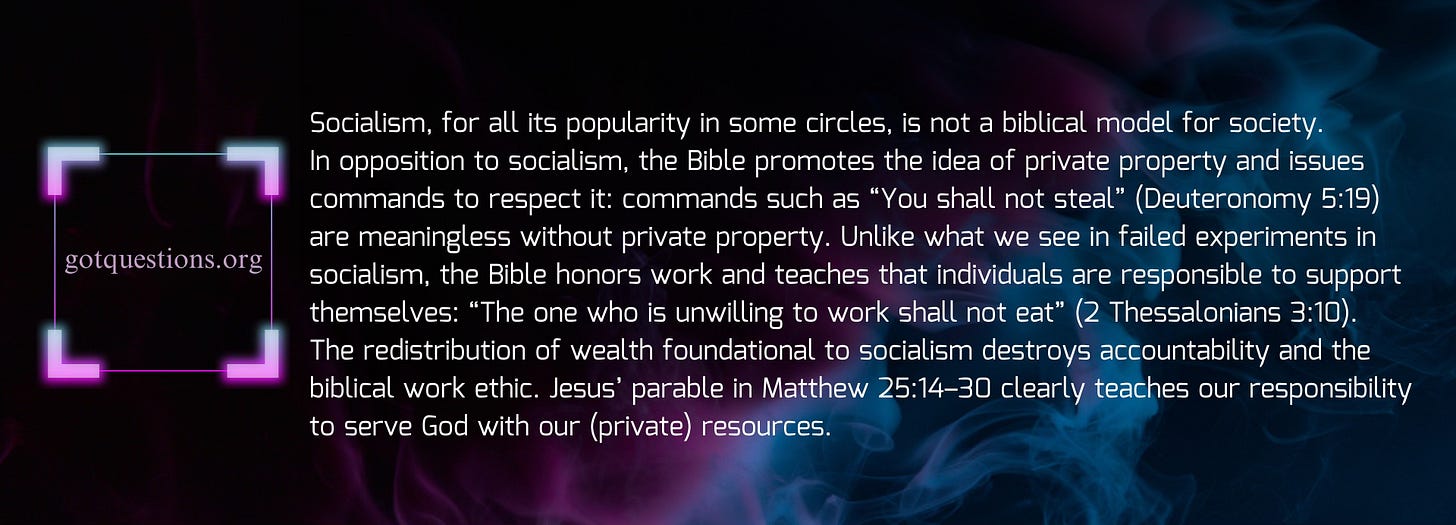Bitcoin, Private Property, and The Federal Govt Land Grab: The Next Phase in Conquering America From Within
“[N]ow that the debt growth model is over, and there is more paper than there are real assets, the rush for land and real assets is on.” — Catherine Austin Fitts
Hurricane Helene’s devastation of Western North Carolina helped to expose a cadre of pinstriped gangsters hiding behind the prestige and power of the federal government who are working to separate American citizens from their private property.
Under the guise of “emergency management” and national security, deploying the silent weapons of public private partnerships, a quiet war has been declared on the American people. The objective: to sequester and control America’s land and natural resources.
The Next Phase in the Elite’s Financial Coup D’état
Government finance expert, president and publisher of the Solari Report, Catherine Austin Fitts is researching and writing on the hijacking of American liquid wealth and real assets, particularly through the manipulation of crypto currency pioneer Bitcoin (BTC).
Fitts is warning that the push for government Bitcoin (BTC) buying programs represents a strategic financial manipulation aimed at allowing Bitcoin billionaires and global elites to offload their holdings while acquiring real assets like land and minerals, effectively transferring wealth from taxpayers to the wealthy in a massive “reverse Robin Hood” scheme.
Major takeaways from the article:
Astroturf Campaign for Government BTC Buying Programs:
A coordinated effort is underway to persuade federal and state governments to invest taxpayer money and borrowed funds into BTC, inflating its value for elite holders to exit. This mirrors past manipulative financial tactics, such as those seen during the pandemic.
“We are watching what appears to be a significant ‘astroturf’ campaign to persuade the federal and state governments to begin significant Bitcoin (BTC) buying programs using taxpayers’ money and funds borrowed with ever-expanding debt to fund BTC to be held on government balance sheets.”
Elite Shift from Digital Assets to Real Assets:
The Bitcoin billionaire class seeks to exchange inflated digital holdings for real-world assets such as land, minerals, and gold. By engineering government BTC mandates, they avoid competition from retail buyers while securing control of tangible wealth.
“Think of this as a swap. If you are the Bitcoin billionaires and Mr. Global, you want to get retail to buy your digital creations so that you can shift to owning and controlling the real assets.”
Taxpayer Exploitation and Economic Consequences:
The scheme not only depletes public funds but also intensifies wealth inequality by coercing ordinary citizens to fund the BTC pump-and-dump, leaving taxpayers poorer and elites richer.
“Imagine an entire society of people already being brutalized by inflation and then using their retirement savings and taxes to pump the BTC price, thereby taking the Bitcoin billionaires out of their Ponzi scheme at the top.”
In summary, Fitts is exposing how Bitcoin’s original purpose and promise has been co-opted into a pump-and-dump scheme benefiting elites at the expense of taxpayers. By leveraging government mandates, these actors aim to inflate BTC prices, exit profitably, and transition their wealth into tangible assets, thereby orchestrating a massive wealth transfer from the poor to the rich under the guise of innovation and economic strategy.
Exploitation of America: How Does This Work?
Land mitigation could potentially be exploited by bad actors, including wealthy individuals and government officials, as a mechanism to acquire large amounts of private property under the guise of environmental protection.
Here’s how this could work:
Expanding Regulatory Power
Federal or state governments could impose stricter environmental regulations, designating vast areas as critical habitats or protected lands under programs tied to land mitigation. Private landowners might then be forced to sell their property or face severe restrictions on its use, diminishing its value.
Creating Artificial Markets
Wealthy individuals or entities could leverage these regulations by purchasing or controlling mitigation credits (e.g., wetland credits or conservation easements) through private mitigation banks. These credits are often required by developers to offset environmental damage, creating a speculative market that bad actors could manipulate for profit.
Bitcoin Conversion to Real Assets
Wealthy individuals with large Bitcoin holdings could use these funds to buy mitigation credits or acquire devalued private lands outright, converting volatile digital assets into tangible real estate. Through intermediaries or partnerships, these bad actors could amass significant tracts of land while operating under the radar.
Government-Private Collusion
Corrupt officials might collaborate with wealthy investors to enact policies that favor land acquisition by certain groups. For instance, tax incentives, subsidies, or insider knowledge about forthcoming mitigation projects could disproportionately benefit connected individuals, enabling them to dominate the land market.
Consolidating Power
Over time, this process could result in a significant transfer of private property from individual landowners to a few powerful stakeholders. By framing this as environmental stewardship or public benefit, bad actors could shield their actions from scrutiny while consolidating wealth and control over critical resources.
This strategy poses a risk to property rights, economic independence, and local governance, concentrating both wealth and power in the hands of a few under the pretext of environmental responsibility.
Understanding Land Mitigation
Land mitigation generally refers to actions taken to compensate for environmental damage caused by development projects or land-use changes. When developers, industries, or governmental bodies disturb natural habitats or ecosystems—such as wetlands, forests, or other critical areas—they are often required by law to offset the environmental impact. This offset might include restoring, enhancing, or preserving land elsewhere to replace what was lost or damaged.
In the United States, land mitigation requirements are often regulated by federal laws like the Clean Water Act or the Endangered Species Act, which are enforced by federal agencies such as the Environmental Protection Agency (EPA) and the U.S. Fish and Wildlife Service (USFWS).
Federal Government Involvement in Land Mitigation
Federal government land mitigation involves initiatives in which federal agencies acquire, restore, or manage lands ostensibly for the purpose of balancing environmental concerns with development needs.
Done in good faith, this approach can be beneficial in preserving biodiversity, maintaining ecosystem services, and protecting threatened habitats. However, federal involvement can become controversial for several reasons:
Land Rights and Property Ownership
Federal land mitigation often entails acquiring land or placing restrictions on its use, which can infringe upon the property rights of private landowners. For instance, private owners might be limited in developing their land if it is designated as a critical habitat for endangered species.
Economic Concerns
Critics argue that federal land acquisition for mitigation purposes can stifle economic growth, particularly in rural communities where land development might be essential for local industries such as mining, agriculture, or energy production. Additionally, federal control over large tracts of land can limit tax revenue, which depends on property development.
Environmental Outcomes
While land mitigation theoretically balances development with conservation, critics claim that federal land mitigation efforts sometimes fall short. Poorly managed projects may result in substandard environmental outcomes, where the mitigated land does not truly compensate for the loss of biodiversity or ecosystem function at the original site.
Political and Ideological Disputes
Land mitigation, especially on a federal level, is often a polarizing issue within U.S. politics. Opponents of federal intervention contend that these actions reflect overreach and centralization, shifting control from local to federal authorities. Others argue that federal mitigation is essential to combat climate change, protect endangered species, and preserve national heritage.
Examples of Federal Land Mitigation Programs
Some federal mitigation projects illustrate the complexities of this issue:
National Wetlands Mitigation
Through the Clean Water Act, the U.S. Army Corps of Engineers mandates wetland preservation to compensate for development in wetland areas. Although the program aims to maintain "no net loss" of wetlands, critics argue that restored or constructed wetlands often fail to replicate the ecological function of natural ones.
Endangered Species Act (ESA) Habitat Conservation
The ESA mandates mitigation efforts when land use threatens endangered species habitats. Under "habitat conservation plans," private landowners or companies may be required to create protected areas to offset harm to species, which can lead to disputes over private land rights.
Federal Land Conservation Programs
Programs like the Conservation Reserve Program (CRP), run by the USDA, offer financial incentives to private landowners to convert agricultural land to natural habitats. This helps conserve soil, water, and wildlife but can cause tension when federal involvement seems to interfere with agricultural productivity.
Seen & Heard, in Georgia
STOP the Spread of UNESCO "World Heritage Sites"
There are powerful forces working to declare Georgia's Okefenokee Swamp a "UNESCO World Heritage" site, a warning about the danger of this rogue international organization.
WATCH: https://rumble.com/v5cgq7n-stop-the-spread-of-unesco-world-heritage-sites.html
The federal government’s role in land mitigation exemplifies the clash between environmental stewardship and property rights, economic development, and federalism. Proponents of federal land mitigation see it as necessary for preserving national resources and fulfilling environmental responsibilities, whereas opponents view it as a problematic overreach.
From the Christian worldview, the issue of stewardship and respect for God’s creation (Psalm 24:1) shall be balanced with the call to protect individual dignity and liberty, and to respect property rights. Regardless of what the mainstream chooses to call a “conspiracy theory,” there is most certainly a valid criticism and relevant conversation to be had on what constitutes responsible governance and effective environmental protection.
Socialism, for all its popularity in some circles, is not a biblical model for society. In opposition to socialism, the Bible promotes the idea of private property and issues commands to respect it: commands such as “You shall not steal” (Deuteronomy 5:19) are meaningless without private property. Unlike what we see in failed experiments in socialism, the Bible honors work and teaches that individuals are responsible to support themselves: “The one who is unwilling to work shall not eat” (2 Thessalonians 3:10). The redistribution of wealth foundational to socialism destroys accountability and the biblical work ethic. Jesus’ parable in Matthew 25:14–30 clearly teaches our responsibility to serve God with our (private) resources.
The Bible promotes freedom and personal responsibility, and neither of those concepts lasts long under Marxism. There’s a reason why, in Marxist states such as Communist China and Vietnam and the old Soviet Union, Christians are always persecuted—the ideas espoused by Marxism are antithetical to the teachings of Jesus Christ. The differences are irreconcilable.
gotquestions.org
Faith is Resistance!
About the Authors of this article: https://armoroftruth.substack.com/about
Read daily notes + newsfeed from Armor of Truth: https://substack.com/@armoroftruth/notes
Sources:
1. Solari Report https://open.substack.com/pub/solarireport/p/plunder-capitalism-is-the-bitcoin?r=1slrxy&utm_medium=ios
2. Clean Water Act, 33 U.S.C. §§ 1251 et seq.
3. Endangered Species Act, 16 U.S.C. §§ 1531 et seq.
4. U.S. Fish and Wildlife Service, "Habitat Conservation Plans Under the Endangered Species Act"
5. Environmental Protection Agency, "Wetlands Compensatory Mitigation"
Download the Armor of Truth Mobile App Free
NEW! AoT Locals
NEW! AoT Telegram
Armor of Truth, Inc is a 501(c)(3) Non Profit Organization
Donations are tax deductible
By supporting Armor of Truth you are helping to reach thousands of people daily with the Gospel of Jesus Christ and encouragement to persevere in a world that is hostile to the gospel. Please consider making a donation to help support this mission.
Support Armor of Truth, official donation page: Donate
CashApp $aotmin














